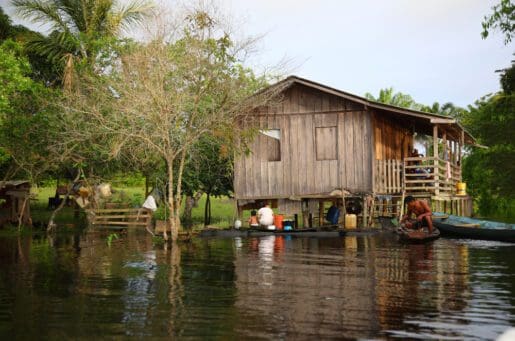Bioethics Forum Essay
What Happened to Concerns About Human Enhancement?
Prominent science policy reports that set the stage for the recent Third International Summit on Human Genome Editing all raise questions about human enhancement. Enhancement concerns also consistently loom large in public attitudes on possible uses of these genomic technologies. It may seem surprising, then, that enhancement received little formal attention at the Summit. Instead, the Summit focused elsewhere–on issues of access to emerging forms of somatic cell genome editing for genetic disease. Here we report our observations on the Summit’s de-emphasis of enhancement questions and suggest some consequences of continuing this trend in subsequent science policy deliberations.
Despite its absence from the Summit’s agenda, the topic of genome editing for human enhancement did spontaneously bubble up at the meeting in interesting ways. On the first day, outside the Summit’s venue, London’s Francis Crick Institute, protesters passed out pamphlets titled “Stop Designer Babies.” At first it seemed as if the protest would succeed in making enhancement an important topic at the Summit. In the opening session, Robin Lovell-Badge, chair of the Summit’s organizing committee, referenced the protesters and also noted the importance of the Crick Institute’s current exhibit, “Cut + Paste,” to capture public views on uses of genome editing. (The exhibit asks visitors to consider where they’d “draw the line” and “which human traits are desirable,” and to rate their views on using genome editing to enhance humans, with response options that range from “No way” to “Bring it On”).
Lovell-Badge also mentioned that during the Second International Summit on Human Genome Editing in 2018, he chaired the session where He Jiankui revealed his genome editing experiments on human embryos that resulted in the births of (at least) two children in China. Lovell-Badge called He Jiankui’s experiments, which endeavored to make the children resistant to HIV, “a form of enhancement.” He went on to describe recent news of a human gene therapy company established in Honduras that is investigating interventions to increase longevity and asked, “Are there any situations where enhancement might be reasonable, whether it is somatic or heritable genome editing?” He surmised that the question could not be answered just by those in attendance at the Summit, and needs broad public input.
Despite Lovell-Badge’s inviting opening questions, almost none of the Summit’s speakers explicitly addressed concerns about enhancement in their presentations. The major exception was Kelly Ormond of ETH-Zurich and Stanford University, whose presentation, “Hopes and Fears for Human Genome Editing,” focused on society’s conceptualizations of disability and disease and their relation to enhancement issues. Ormond cited studies eliciting views from members of the public, genome editing scientists, and other genomics professionals who all see enhancement as the most problematic potential use for human genome editing. Nevertheless, she concluded that human genome editing “is going to slide right into enhancement quicker than we think,” and that we should “begin to rigorously consider that sooner rather than later.”
Similarly, while he did not address enhancement in his presentation, Fyodor Urnov of the University of California, Berkeley, responded to a question from the audience about the prospect for enhancement by saying, “For somatic [editing], I’m going to say something very strong. There is no way to prevent CRISPR from eventually being used for so-called ‘human enhancement’.”
Despite the ways in which human genome editing for enhancement emerged as an unsolicited concern at the Summit, the organizing committee’s summary of the Summit made no mention of the topic. Yet even there, the topic asserted itself. In reading the summary aloud at the conclusion of the Summit, Lovell-Badge acknowledged the omission. After reading, “Governance mechanisms for human genome editing need to protect ongoing, legitimate research, while preventing clinics or individuals from offering unproven interventions in the guise of therapies or ways to avoid disease,” he paused to offer an aside: “And perhaps we should have added ‘or for enhancement.’ But this was written in a hurry, remember.”
From one perspective, it is understandable why the Summit’s agenda and summary did not focus on human enhancement. Such a discussion could have distracted attention from the Summit’s main purpose, which was to address issues of equity and access to therapeutic forms of somatic cell genome editing. By highlighting recent advances in genome editing for diseases like sickle cell anemia, speakers addressed the need to widen access to genome therapies across the globe. This focus is a distinct shift from the 2018 Summit, which was largely dominated by collective consternation over the premature heritable genome editing conducted by He Jiankui that some have labeled enhancement. Rather than harken back to that debate to discuss speculative enhancement concerns, it makes sense that the organizing committee chose to focus on the more immediate issues of justice raised by emerging somatic cell gene therapies.
Moreover, there is a slipperiness to enhancement concerns that may have steered the organizing committee away from the topic. As an ethical and regulatory boundary, the distinction between therapy and enhancement has long been questioned, as detailed in the 2017 National Academies Press report on human genome editing. Both that report and the more recent 2020 report from the International Commission on the Clinical Use of Germline Genome Editing sidestep these conceptual issues by suggesting that concerns about enhancement are a matter for societal rather than expert decision-making, “informed by scientific knowledge but relying on value judgments” that can only come from the public. In a way, the choices of the 2023 Summit organizers reflect this stance, suggesting by omission that the scientific community has no special professional role in anticipating the issues that enhancement uses of genome editing will raise.
The committee’s efforts to focus genome editing policy discussions on issues of equity and access to emerging somatic cell therapies are a welcome development. However, as Ormond, Lovell-Badge, Urnov, and the Summit protesters remind us, concerns over human enhancement persist. In fact, one of the main reasons the discussion of enhancement should remain on the scientific community’s anticipatory agenda is one that reflects the Summit’s main focus on equity and access: the worry that even somatic cell enhancement will exacerbate inequities by widening welfare gaps between those who can afford it and those who cannot. In that context, as Lovell-Badge pointed out, the premature marketing of putative enhancement interventions will require oversight whether or not such uses are on the science policy agenda.
If, in the face of public concern, the scientific community absolves itself from anticipating such issues, it risks losing public trust in its ability to govern itself. Yet, as the 2020 International Commission report notes, it is the job of science to help inform such governance, just as science itself should interrogate its own value judgments and priorities. The 2023 Summit organizing committee exhibits such self-reflection in its efforts to concentrate on immediate issues of access and equity for gene editing therapies. We do not presume to know whether enhancement provides a reasonable ethical boundary for human genome editing. Our hope here is to put human enhancement, for all its slipperiness, back on the table for examination–socially, ethically, and in terms of science policy and discussion.
Jean Cadigan, PhD, is an associate professor of social medicine and a core faculty member in the Center for Bioethics at the University of North Carolina at Chapel Hill School of Medicine. With Eric Juengst, she currently leads a study on ethical and governance challenges of human genome editing research. Margaret Waltz, PhD, is a research scientist in the department of social medicine and Center for Bioethics at the University of North Carolina at Chapel Hill. Rami Major is a PhD candidate in genetics and molecular biology and student assistant in the department of social medicine at the University of North Carolina at Chapel Hill. Rebecca L. Walker, PhD, is a professor of social medicine and of philosophy at the University of North Carolina at Chapel Hill.
In addition to the authors named above, research group members who contributed as co-authors to this commentary are John Conley, Arlene Davis, Michael Flatt, Gail Henderson, Eric Juenst, and Douglas Mackay. The research group is supported by grant number R01 HG010661-01A1 from the NIH National Human Genome Research Institute













I wonder if the lack of enhancement talk reflects a desire to stay away from the toxic stew of conservative bioethics. Leon Kass and the Bush White House’s President’s Council on Bioethics hitched concerns about enhancement to the language of “dignity,” their abuse of the _Brave New World_ analogy, and their anti-abortion agenda. The language of “enhancement” raises concerns for the public and scientists, but its fuzziness allows it to be abused by bad actors pushing an agenda.